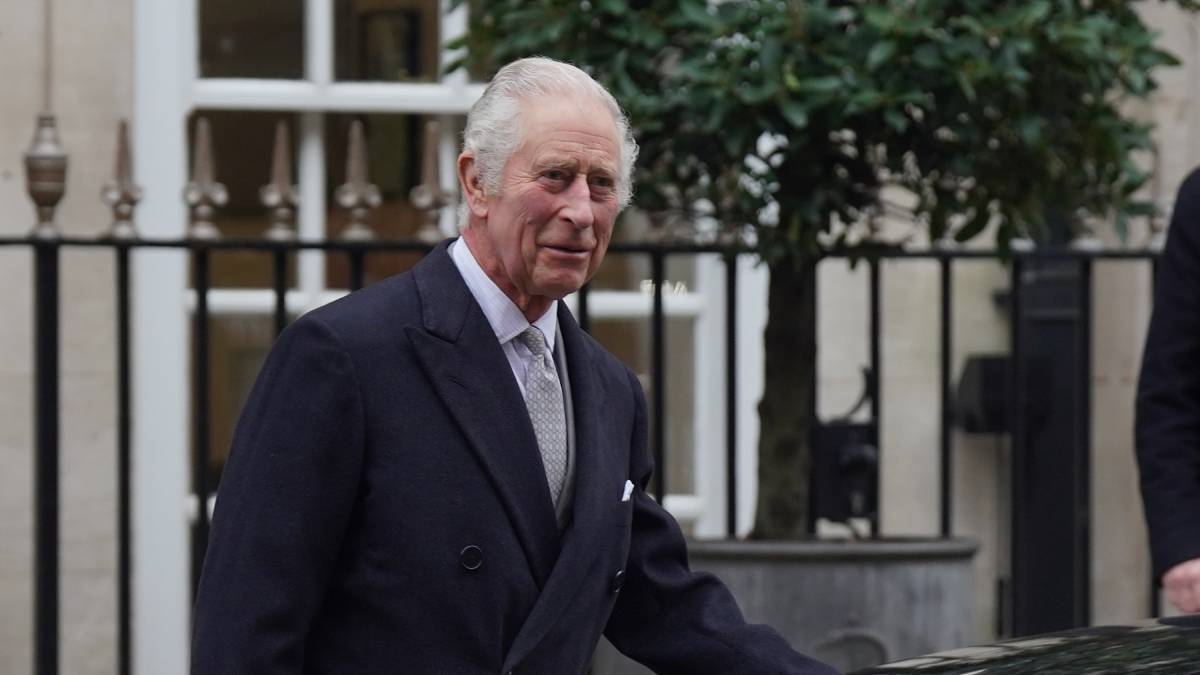The royal family is rallying around the King following his cancer diagnosis.
Charles, 75, has began treatment for an undisclosed cancer that was diagnosed after undergoing an operation for an enlarged prostate.

According to the Cancer Council, last year an estimated 165,000 Australians were diagnosed with cancer and two in five Australians will be diagnosed with cancer before they turn 85.
An expert shares how you can support a family member who has been diagnosed with the disease.
How can you support a loved one who has been diagnosed?
The most important thing is to let them know that they can talk to you.
“Ask them how they would like to be supported,” said Mark Guymer, the CEO of Cancer Support UK. “Cancer is so individual and affects everyone differently, so it is important that the family recognises this and responds appropriately.

“Hugs can make a big difference or a squeeze of the hand. Even just sending a card or a text or making a phone call to say you are thinking of them. Keep this contact up, these small messages make a difference even after treatment has ended.”
Family members can help with with practical and emotional support too.
“Allow the person to decide on what to accept. Lifts to appointments, getting a new book or magazine to read during chemo, home-cooked meals, and shopping, as someone going through cancer treatment can get tired very easily.
“Let them know that you are there if they want to talk to you. Share a joke or laugh with them – keep your relationship as normal and balanced as possible,” said Mr Guymer.
What things should they avoid saying?
Mr Guymer acknowledged that people are often afraid of saying the wrong thing to someone with cancer, and explained why “it’s [still] important to say if you are feeling awkward and to acknowledge the situation” – rather than pretending it’s not happening.
“Never make assumptions about how people are feeling. Focus on listening rather than worrying about what to say. Better to check in and ask what they need,” he added.

“Don’t bring up someone else’s cancer story. Cancer [experience] is unique, so listening to how someone else went through cancer isn’t helpful or reassuring. Don’t say things like ‘are you feeling better?’ Avoid saying you know how someone feels.
“Don’t tell someone to be strong and positive as it puts pressure on them to behave in a certain way. Don’t tell someone that they are brave – they didn’t choose to have cancer and they may be feeling very frightened.”
What should they say instead?
It is really important to have open conversations. It’s why Mr Guymer encourages family members to “avoid asking closed questions, such as ‘Are you okay?’, which elicit one-word or short answers and require follow-up questions”.
He said: “Instead, start conversations by inviting them to give you more information. Let them set the agenda for the discussion. They may want to talk to you about a practical concern or an emotional one. So let them take the lead and avoid putting your own thoughts and emotions on to them.
“It’s about how they are feeling, rather than how you expect them to be feeling. Start the conversation very simply by asking ‘How are you feeling today?’ Don’t take it personally if someone doesn’t want to talk about their cancer and respect their privacy.”

What impact can the cancer diagnosis have on the family?
Cancer can cause stress and fear, and put immense strain on a family. There can be an information overload – as you try to understand medical terms – along with schedule changes and financial pressures.
“If the person going through cancer treatment is unable to work, this will impact income, especially with increases in cost of living,” said Mr Guymer.
“The emotional impact can drain you when supporting someone with cancer – you will be on the receiving end of the emotions being experienced by the person with cancer, such as anger, grief, sadness, loneliness, fear and worry. It’s important not to neglect your own needs during this time, or you may end up not being able to cope. Allow yourself time to process what’s happening or has happened, and take breaks as and when you can.”
Visit the Cancer Council for more information on how to support your loved one.
Have you cared for a person with cancer? Did you need professional support? Why not share your experience and tips in the comments section below?
Also read: Hair dye and cancer, is there a link?
– With Yolanthe Fawehinmi

